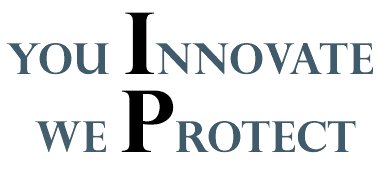- Charlotte
- South Florida
- Salt Lake City

What Is a Copyright?
A copyright is a type of intellectual property protection and right for original works of authorship, i.e., creative works such as literary, artistic, musical, dramatic, and other works. Copyright protection may be obtained for both published and unpublished works through registration of the copyrightable original work with the United States Copyright Office. A copyright registration provides a grant of certain statutory rights under U.S. copyright laws that are not available for unregistered works.
A wide variety of copyrightable works exist that may be registered with the Copyright Office in order to protect the copyright rights of the copyright owner. Examples of registrable copyrightable works include:
- Literary works including books, novels, short stories, poetry, and other writings;
- Musical works, also referred to as musical compositions, including music lyrics, sheet music, and music recordings in the form of phonorecords, e.g., a CD (the author of a musical composition is the music composer and the lyricist, if any);
- Dramatic works including scripts created for television, radio, or motion pictures, choreographic works of dance movements, and pantomimes acting out or imitating characters, events, or situations;
- Motion pictures, video recordings, and other audiovisual works;
- Pictorial, graphic, and sculptural works including photographs, paintings, drawings, graphic designs and computer artwork, sculptures, jewelry designs, comic strips, greeting cards, fabric designs, toys, dolls, games, and other visual artworks including three-dimensional artworks;
- Architectural works including architectural drawings, models, and plans and constructed buildings; and
- Sound recordings including recordings of dramatic performances, lectures, and music (the author of a sound recording is the performer(s) or record producer who processes and fixes the sounds in the recording, as distinguished from a copyright for a musical composition that does not protect the actual recorded performance of the performer but only the underlying musical composition).
Not all copyrightable works are purely artistic in nature. Examples of commercial works that may be protected by copyright through registration with the Copyright Office include software code and computer programs, product labels, websites, artwork applied to clothing, product packaging artwork, advertising and promotional literature, mechanical and technical drawings, instruction manuals, and text, graphic designs, photographs, and other artwork used in the advertisement, promotion, and/or packaging of a product or service.
The following list includes examples of items for which copyright protection does not exist under U.S. law and for which the Copyright Office will not issue a copyright registration:
- concepts, discoveries, devices, ideas, methods, principles, procedures, processes, or systems (as distinguished from a written, visual, or audiovisual description, explanation, or illustration of one of the foregoing);
- titles, short phrases, slogans, and names;
- works consisting entirely of information in the public domain and containing no original authorship (e.g., standard calendars, and lists taken from government documents or other common sources);
- familiar designs and symbols;
- variations of typographic lettering and ornamentation;
- listings of ingredients; and
- works that have not been fixed in a tangible form (e.g., unrecorded performances and speeches).
In general, copyright protection lasts for the life of the author plus an additional 70 years. With respect to works made for hire, copyright protection lasts for a term of 95 years from the date of the work’s first publication or for a term of 120 years from the date of the work’s creation, whichever expires first.
Ownership rights in a copyright, including an associated copyright registration for the copyrightable work, can be transferred entirely or in part to another person or to a business entity by a copyright assignment.
Without transferring ownership rights in a copyright, limited rights to display or perform the work publicly (including by digital transmission), reproduce the copyrightable work, distribute copies or phonorecords of the work, or prepare derivative works based on the original copyrightable work may be granted by the copyright owner to a licensee that is another person or a business entity by means of a copyright license agreement.
The Copyright Office determines whether a registration should be issued for a copyrightable work, however, the Copyright Office does not enforce copyright rights. Enforcement of copyright rights is the responsibility of the copyright owner, although, under certain specific circumstances, copyright infringement can constitute a federal crime punishable by imprisonment, fines, or both. Monetary damages and injunctive relief may be sought by a copyright owner against an infringer of a copyright through copyright infringement litigation.
When a copyright expires, the copyrightable work enters the public domain and may be freely used by anyone.
No, the “poor man’s copyright,” in which an author mails a signed copy of his or her work to himself or herself that is retained by the author unopened with its postmark and contents intact, is not an effective means for protecting and obtaining any rights to one’s copyright. Although copyright rights automatically arise for a copyrightable work when it is created in a fixed form, under U.S. copyright laws, only a copyright registration issued by the Copyright Office can provide an author or copyright owner with a variety of statutory rights in and to the copyrightable work, including the right to file a lawsuit for copyright infringement of the work.
Under a treaty known as the Berne Convention, U.S. copyright protection extends to most, but not all, foreign countries. If you are uncertain whether your U.S. copyright registration extends your copyright rights in your work to a particular foreign country, please contact one of our attorneys who can advise you as to your rights.
Please contact one of our attorneys if we may assist you in the preparation and filing of a copyright application or with the drafting or negotiation of a work for hire agreement or copyright license agreement.

Quick Links
Copyright 2025 Johnson & Martin, P.A., All Right Reserved
